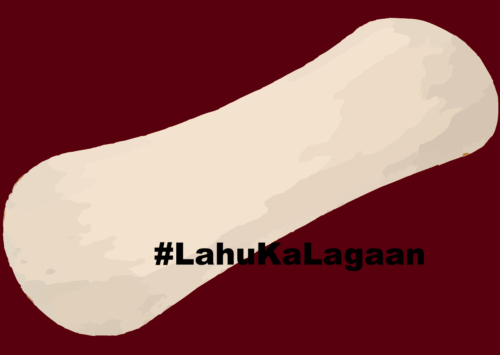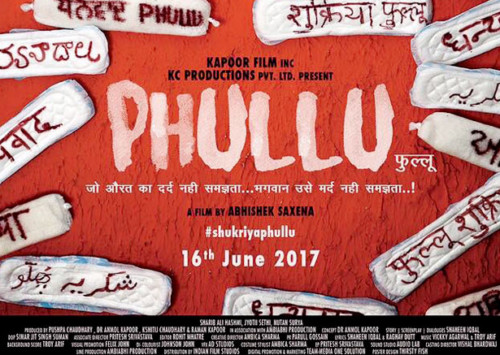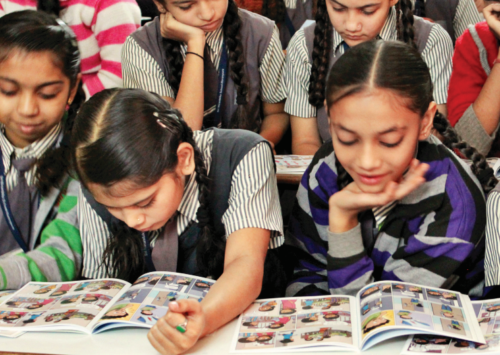Phullu – a film to stop period shaming in India

With its ‘A’ certification, Phullu will miss its most important target audience – India’s youngsters
‘Phullu’ is a Bollywood film that strives to educate the Indian public about menstruation and the proper hygienic treatment of periods, a subject that is considered a taboo by many Indians. However, handed an Adult (A) rating by the Central Board of Film Certification, the film will miss its most important target audience – the young boys and girls of India.
‘Periods’, ‘sanitary pad’, ‘menstruation’: such words in India are often hushed, though rarely evoked, but always with a lot of shame and embarrassment. Then, for the need of being ‘decent’, most Indians, women as well as men, chose to remain ignorant of this essential biological process, which is at the origin of human’s creation. And so, the myths and taboos related to periods have become, over the course of time, norms and continue to exist across all of India, both urban and rural, impeding women from having even basic access and knowledge to treat their periods in a hygienic manner.
The story of the film Phullu follows a similar vein. Phullu, who lives in a village in India, has always been ignorant about periods. And like many other Indian men, he discovers the monthly hardship, only after getting married, when he sees his wife hiding the rag that she uses during her periods. Later when he learns that his village seriously lacks means for hygienic sanitation, and how the ladies of the village are subjected to handicapping and unreasonable menstrual myths and taboos, he decides to educate and sensitise his village in this matter. But his Good Samaritan gestures do not find any appreciation among the villagers, and Phullu is entitled to more shame when he addresses such a taboo topic. However, he goes against all odds and endeavours to develop cheap sanitary napkins for everyone to be able to afford them.
An “adult” subject
But the film unfortunately will not be accessible to the largest segment of the target audience, young Indians, because of its ‘A’ (Adult) classification, which prohibits minors from viewing the movie at theatres.
“We wanted this film to target families, especially young Indians, girls as well as boys. But the Central Board of Film Certification (CBFC) gave it an ‘A’ rating. If it is allowed to advertise sanitary napkins on national television, then why put a censorship on this film, which is a pedagogical advancement in the subject,” shares Sharib Hashmi, the actor playing the protagonist of the film Phullu.
The director, Abhishek Saxena, approves that the film is devoid of any obscene content, smoking, or any other subject that could have warranted the ‘A’ rating. The film’s biggest goal, he adds, was to encourage people to talk about periods and sanitary pads without shame, but such a rating only hampers that intent. “Our small budget does not allow us to fight against the decision. The problem is that the decision makers at the CBCF have also grown up with such stigmas, and thus find the subject ‘adult’. This is the very taboo that we wanted to break,” remarks a disheartened Abhishek Saxena in an interview with The Quint.
CBFC’s gives #Phullu A rating, Pahlaj Nihlani’s logic that people in non-metropolitans will be flabbergasted by film about sanitary pads!!
— Sonal Kapoor (@ArtForCause) June 19, 2017
CBFC thinks periods are an adult subject.They’re right.I behaved more like an adult at 12 when I got my periods, than CBFC does now
#Phullu— Priya Sometimes (@PriyaSometimes) June 17, 2017
Sanitary napkins, a luxury product
But the subject becomes all the more important as less than 12 pc of Indian women have hygienic access to treat periods, according to a 2011 survey by AC Nielsen. With sanitary napkins being sold at prohibitive prices, many Indian women turn to unhygienic, even dangerous, means like old rags, or even sometimes sand, straw or ash.
To make matters worse, taxes that go up to 14.5 pc on sanitary napkins, and even more for products such as tampons, are imposed by some Indian states. Paradoxically, these “luxury” products become all the more inaccessible for those who need them for a week, every month and during a good forty years of their lives.
While India does not lack initiatives like Phullu, or the comic Menstrupedia, as well as those taken by other activists and Non-Government Organisations, to raise awareness among their fellow citizens on this essential issue, the road to emancipation of Indian women still seems a long way to go.













